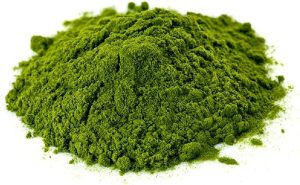
- Overview of Omega-9
- Brief History of Omega-9
- Functions of Omega-9
- Recommended Daily Intake (RDI), Recommended Dietary Allowance (RDA), Adequate Intake (AI), or Reference Nutrient Intake (RNI) for Omega-9
- Deficiency of Omega-9
- Food Sources of Omega-9 and Where to Get It From
- Omega-9 and Its Interaction with Other Medications
- Websites and Articles to Delve into the Benefits of Omega-9
- Disclaimer
Overview of Omega-9
Omega-9 fatty acids, classified as monounsaturated fats, play a crucial role in promoting heart health and overall well-being. Predominantly composed of oleic acid, found in olive oil and certain nuts, Omega-9 aids in reducing LDL cholesterol levels while increasing HDL cholesterol, thereby supporting cardiovascular function. Additionally, these fats possess anti-inflammatory properties, contributing to a lower risk of chronic diseases.
While the human body can produce Omega-9, obtaining it through dietary sources enhances its benefits. Incorporating foods like olive oil, avocados, and almonds into one’s diet can help maintain a healthy balance of Omega-3, Omega-6, and Omega-9 fatty acids, fostering optimal physiological functions and minimizing the risk of cardiovascular issues.
Brief History of Omega-9
Omega-9 fatty acids have a rich history entwined with the evolution of human nutrition and dietary understanding. While the term “Omega-9” specifically refers to monounsaturated fats, historical perspectives often grouped it with Omega-3 and Omega-6 fatty acids. Traditional diets, such as the Mediterranean diet, have long included sources of Omega-9, with olive oil being a prominent example.
Over time, scientific research has delved into the distinct benefits of Omega-9, particularly its positive impact on heart health. As nutritional awareness increased, so did the recognition of the importance of balancing different types of fatty acids in the diet. Today, Omega-9 continues to be a key component of discussions around healthy eating, with a focus on incorporating sources like olive oil, avocados, and nuts for overall well-being.
Functions of Omega-9
Omega-9 fatty acids, primarily composed of oleic acid, play several important roles in the body, contributing to overall health and well-being. Here are some key functions of Omega-9:
- Heart Health:
- Omega-9 helps promote cardiovascular health by supporting a healthy lipid profile. It can help reduce levels of LDL (low-density lipoprotein) cholesterol, often referred to as “bad” cholesterol, while increasing levels of HDL (high-density lipoprotein) cholesterol, considered “good” cholesterol.
- Anti-Inflammatory Properties:
- Omega-9 fatty acids have anti-inflammatory effects, helping to reduce inflammation in the body. Chronic inflammation is associated with various health conditions, and Omega-9’s anti-inflammatory properties may contribute to a lower risk of inflammatory diseases.
- Cell Membrane Structure:
- Oleic acid, a prominent Omega-9 fatty acid, is a major component of cell membranes. It helps maintain the fluidity and flexibility of cell membranes, ensuring proper cell function and communication.
- Insulin Sensitivity:
- Some studies suggest that Omega-9 fatty acids may play a role in improving insulin sensitivity, potentially benefiting individuals with insulin resistance or type 2 diabetes.
- Nutrient Absorption:
- Omega-9 fatty acids are involved in the absorption of fat-soluble vitamins (A, D, E, and K) in the digestive system. Adequate Omega-9 levels may enhance the absorption of these essential vitamins.
- Brain Health:
- While Omega-3 fatty acids are often more associated with brain health, Omega-9 also plays a role in supporting cognitive function. It contributes to the structure of brain cell membranes and may have neuroprotective effects.
- Energy Storage:
- Omega-9 fatty acids can serve as a source of energy for the body, particularly during times of fasting or low carbohydrate intake.
To reap the benefits of Omega-9, it is essential to maintain a balanced diet that includes sources rich in monounsaturated fats, such as olive oil, avocados, nuts, and seeds.
Recommended Daily Intake (RDI), Recommended Dietary Allowance (RDA), Adequate Intake (AI), or Reference Nutrient Intake (RNI) for Omega-9
As of 2023, science holds no established Recommended Daily Intake (RDI), Recommended Dietary Allowance (RDA), Adequate Intake (AI), or Reference Nutrient Intake (RNI) specifically for Omega-9 fatty acids. These standardized nutritional recommendations typically focus on essential nutrients that the body cannot produce on its own and must be obtained from the diet.
Omega-9 fatty acids, specifically oleic acid, are considered non-essential because the human body can synthesize them. However, including sources of monounsaturated fats in the diet, such as olive oil, avocados, and nuts, is generally recognized as part of a healthy eating pattern.
It’s important to note that nutritional guidelines may evolve, and it’s advisable to consult the latest dietary recommendations from authoritative health organizations or local health agencies for the most up-to-date information. These organizations, such as the World Health Organization (WHO) or national health departments, often provide guidance on overall fat intake and the types of fats that are beneficial for health.
Deficiency of Omega-9
Omega-9 fatty acids, such as oleic acid, are considered non-essential because the human body can produce them. Therefore, a deficiency of Omega-9 is not a common concern. Unlike essential fatty acids like Omega-3 and Omega-6, which must be obtained from the diet because the body cannot synthesize them, Omega-9 deficiency is generally not a significant issue for individuals with a well-balanced diet.
However, it’s crucial to maintain a proper balance of different types of fatty acids, including Omega-3, Omega-6, and Omega-9, for overall health. A diet that is excessively high in saturated and trans fats while lacking in monounsaturated and polyunsaturated fats may contribute to an imbalance that could have negative health implications.
While there is no specific deficiency associated with Omega-9, an overall imbalance of fatty acids may be linked to various health issues, including cardiovascular disease, inflammation, and metabolic disorders. Therefore, it’s advisable to focus on a varied and balanced diet that includes sources of healthy fats, such as olive oil, avocados, nuts, and seeds, to support optimal health and well-being.
Food Sources of Omega-9 and Where to Get It From
Omega-9 fatty acids, primarily composed of oleic acid, can be obtained from various food sources. Including these sources in your diet can contribute to a well-balanced intake of monounsaturated fats. Here are some common food sources of Omega-9:
- Olive Oil:
- Olive oil, especially extra virgin olive oil, is rich in oleic acid and is a staple in Mediterranean diets.
- Avocados:
- Avocados are a delicious and nutritious source of monounsaturated fats, including Omega-9.
- Nuts and Seeds:
- Almonds, hazelnuts, macadamia nuts, and chia seeds contain significant amounts of monounsaturated fats.
- Peanuts and Peanut Butter:
- Peanuts and peanut butter are good sources of monounsaturated fats, contributing to Omega-9 intake.
- Sunflower Oil:
- While sunflower oil contains polyunsaturated fats, it also contains a notable amount of monounsaturated fats, including Omega-9.
- Canola Oil:
- Canola oil is another cooking oil that contains a decent amount of monounsaturated fats.
- Sesame Oil:
- Sesame oil, used in various cuisines, is a source of monounsaturated fats.
- Poultry:
- Chicken and turkey, especially the lean cuts, contain some monounsaturated fats.
- Seafood:
- Certain fatty fish, such as salmon and mackerel, contain monounsaturated fats, although they are more commonly associated with Omega-3 fatty acids.
- Dairy Products:
- Some dairy products, including cheese and whole milk, contain small amounts of monounsaturated fats.
When incorporating these foods into your diet, it’s essential to focus on overall dietary balance and moderation. While monounsaturated fats are considered healthy, it’s crucial to maintain a well-rounded intake of all essential nutrients for optimal health.
Omega-9 and Its Interaction with Other Medications
Basically, there is limited information on specific interactions between Omega-9 fatty acids and medications. Omega-9 fatty acids, primarily in the form of oleic acid, are considered non-essential, and they are generally obtained through dietary sources like olive oil, avocados, and nuts.
However, it’s important to note that dietary supplements, such as Omega-9 supplements, might interact with medications or have effects on certain health conditions. If you are considering Omega-9 supplements or making significant changes to your diet, it’s advisable to consult with a healthcare professional, especially if you are taking medications or have pre-existing health conditions.
Here are a few points to consider:
- Blood Thinners (Anticoagulants):
- Omega-9 fatty acids, like those found in olive oil, may have mild anticoagulant properties. If you are taking blood thinners, adding significant amounts of Omega-9 to your diet could potentially enhance the anticoagulant effects. It’s important to discuss this with your healthcare provider to ensure proper monitoring.
- Diabetes Medications:
- Some studies suggest that Omega-9 fatty acids may improve insulin sensitivity. If you are taking medications for diabetes, it’s crucial to monitor blood sugar levels closely, as adjustments to medication dosage may be necessary.
- Cholesterol-Lowering Medications:
- Omega-9 fatty acids can contribute to a healthy lipid profile by reducing LDL (“bad”) cholesterol and increasing HDL (“good”) cholesterol. If you are taking cholesterol-lowering medications, incorporating Omega-9-rich foods into your diet may complement these effects. However, it’s essential to work with your healthcare provider to monitor and adjust medication as needed.
Always inform your healthcare provider about any supplements or significant dietary changes to ensure they align with your overall health plan. Additionally, remember that individual responses to medications and supplements can vary, and professional guidance is crucial for personalized advice.
Websites and Articles to Delve into the Benefits of Omega-9
These websites provide a range of information on omega-9 fatty acids, including their sources, benefits, and role in overall health. Always consult with healthcare professionals for personalized advice.
- Wikipedia – Omega-9 Fatty Acid
- Overview of omega-9 fatty acids, their sources, and functions.
- OmegaQuant – What Are Omega-9 Fatty Acids?
- Provides information on the role of omega-9 fatty acids in the body.
- Healthline – Omega-3-6-9 Overview
- Overview of omega-3, -6, and -9 fatty acids, their sources, and health benefits.
- ScienceDirect – Omega-9 Fatty Acid
- Scientific insights into omega-9 fatty acids and their role.
- University Health News – Omega-9 Benefits
- Discusses the benefits of omega-9 fatty acids and dietary sources.
- Mdrive for Men – What Is Omega-9
- Information on omega-9 and its relevance, particularly for men’s health.
- Wellgard – What Are Omega-9 Good For
- Discusses the health benefits associated with omega-9 fatty acids.
- Dr. Axe – Omega-9 Benefits
- Dr. Axe’s insights into the benefits of omega-9 fatty acids.
- Vinmec – Omega-3-6-9 Fatty Acids: A Complete Overview
- A comprehensive overview of omega-3, -6, and -9 fatty acids.
- Pileje – Omega-3, -6, and -9 Fatty Acids
- Information on the importance of omega-3, -6, and -9 fatty acids for the body.
Disclaimer
The information is solely provided for educational purposes. It is not intended to diagnose, treat, cure, or prevent any disease. Seek the advice of your physician or qualified healthcare provider with any questions you may have regarding a medical condition at all times. Never disregard professional medical advice because of something you have read or learned from this article.






